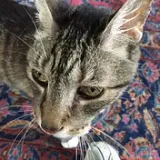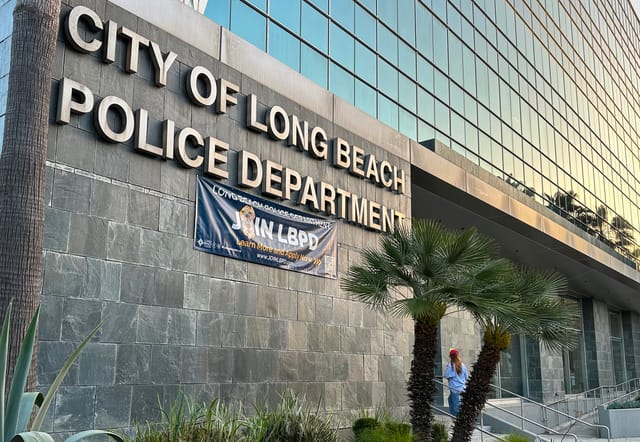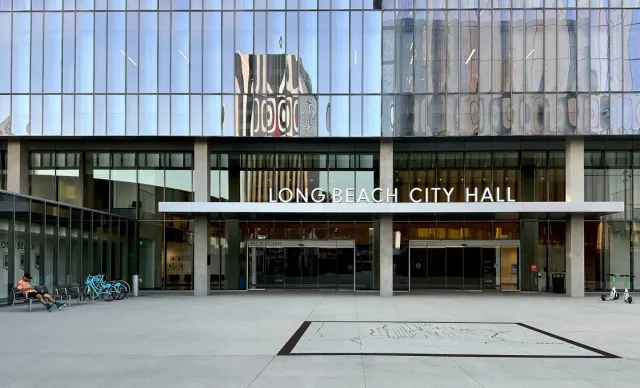Scratch This: They gotta crow!
Rescue Roos provides a perch for castoff roosters.
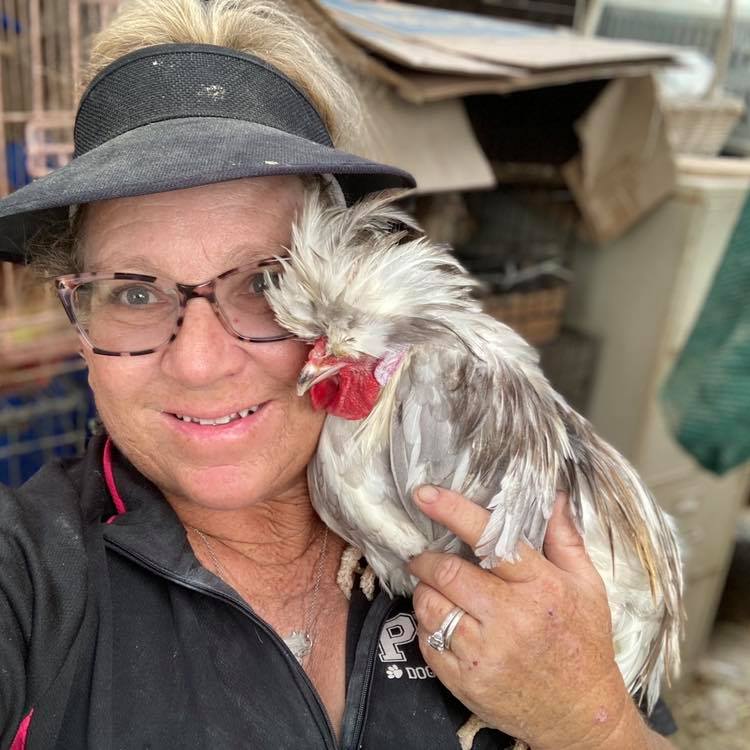
Here’s a brain-teaser for you: If a rooster sat on top of a peaked roof and laid an egg, which side of the roof would it roll off?
Think about it.
If it took you only a split second to say that roosters don’t lay eggs, you’re pretty sharp. Deborah Davidson Harpur gave the answer without any fraction of a second’s delay, and of course, she did. Harpur’s the founder of Rescue Roos, an organization that has managed to save the lives of thousands of barn fowl, mostly roosters, for several years. Harpur manages the organization with the help of an administrator and cares for the animals by herself, with a couple of volunteers. So far, the rescue has adopted out over 1,700 birds.
I met Harpur at a surfing-dog event, where she was showing her rat terriers. She was sitting next to the sign below, and I had to talk to her.
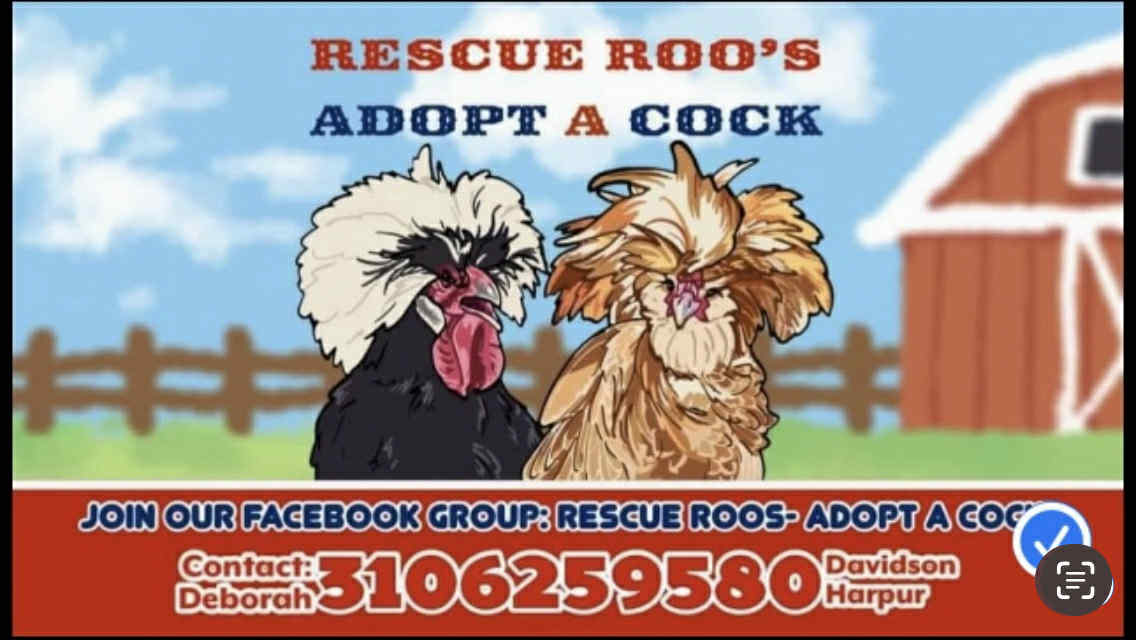
Harpur’s essentially a dog person who teaches canine agility and volunteers at a rescue for furry pets. But she’s also Queen of the Coop at Rescue Roos, which her husband unwittingly helped her start a few years ago.
“He found a random loose chicken in the backyard of his business while fixing a boat,” Harpur said. “He then said I could keep a chicken if I named it Lucky Clucky. So I did. Then, I got Lucky Clucky a pal from the Carson shelter, named Henny Penny. They got joined by a ‘hen’ that ended up being a rooster.”
It wasn’t long before Harpur’s homestead had more chickens than a truckload of Peeps. As with a lot of rescues, people found out that Harpur took in chickens and gave her birds they’d found, most of which were “surprise roosters” — birds that turn out to be boys when a brood of baby chicks grow up.
“My daughter suggested we become a rooster rescue, so we did in February 2021,” Harpur said. “Then, she decided to ditch me and go to college, but I just kept doing the rescue.”
Harpur grew up on an egg farm in Sage, a small community in Riverside County, so likely her affinity for chickens hatched early. She decided to keep it over easy with Rescue Roos and didn’t apply for nonprofit status, although she volunteers with another group that umbrellas her rescue when it’s needed. Expenses are paid out of her own pocket and from donations from others.
“It’s a negative-profit org,” Harpur quipped.
If you think of the stereotypical bird on a weathervane when you think rooster, you’re in for a delightful surprise. Scroll down Rescue Roos’ Facebook page and get a load of all the breeds that Rescue Roos takes in: rain-booted Brahmas, Polish birdies with wild artichoke-style head feathers, sage eggers with fiery combs.
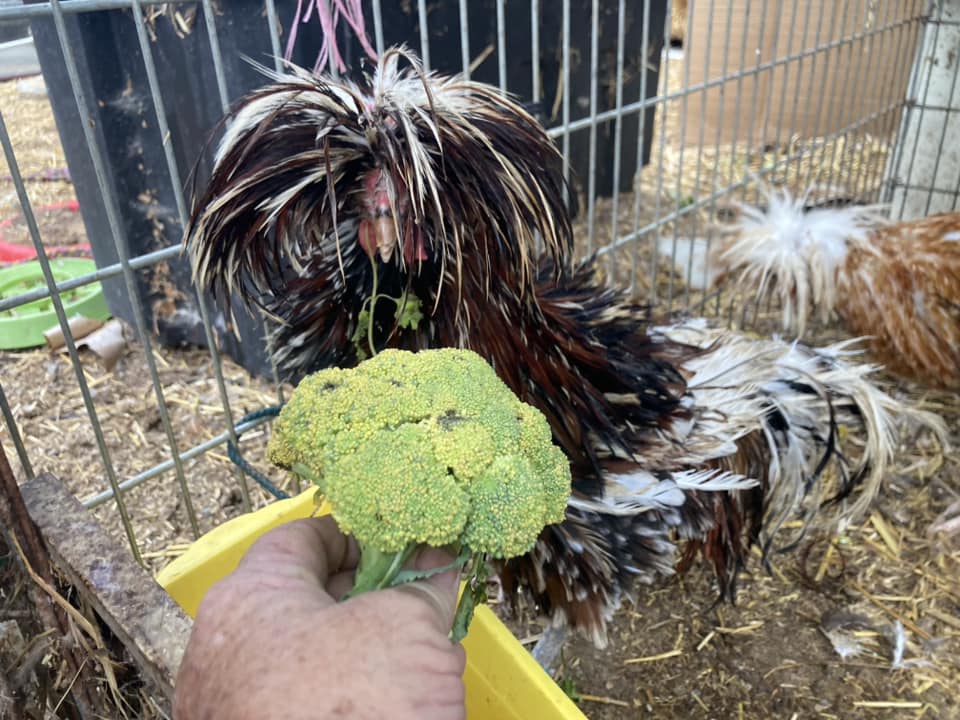
Roosters aren’t permitted in certain municipalities, Long Beach included. Long Beach’s livestock laws permit keeping chickens as long as the owners comply with conditions, but roosters are a no-no because they crow not just at dawn but whenever they’re disturbed.
“They can crow all day long,” Harpur said. “If they see anything, like a hawk, they’ll make a noise to protect their flock. Oh, it’s loud.”
The roosters come to Harpur through shelters and animal control officers, including Long Beach Animal Care Services; hatching projects in schools; and personal surrender when someone gets a “surprise rooster.” Feed stores refer birds to Harpur, too.
Rescue Roos’ first official feathery border was Chico the Man, a rooster that had been used as a fighter. Harpur effectively turned him into a lover. Pauley, a Polish rooster; his first wife, Princess Pearl; and his BFF Marshmallow were surrendered for crowing. Another of the “early birds,” as Harpur calls them, was a fellow named Yolky, whom the rescue rehomed to a horse ranch.
Harpur and her friend Sheryl share an art studio in Rolling Hills Estates. Sheryl paints everything, and Harpur sticks with the birdies. “I’m incompetent at mammals,” she said. She’s immortalized Princess Pearl, Pauley and Marshmallow (left to right) in this painting:
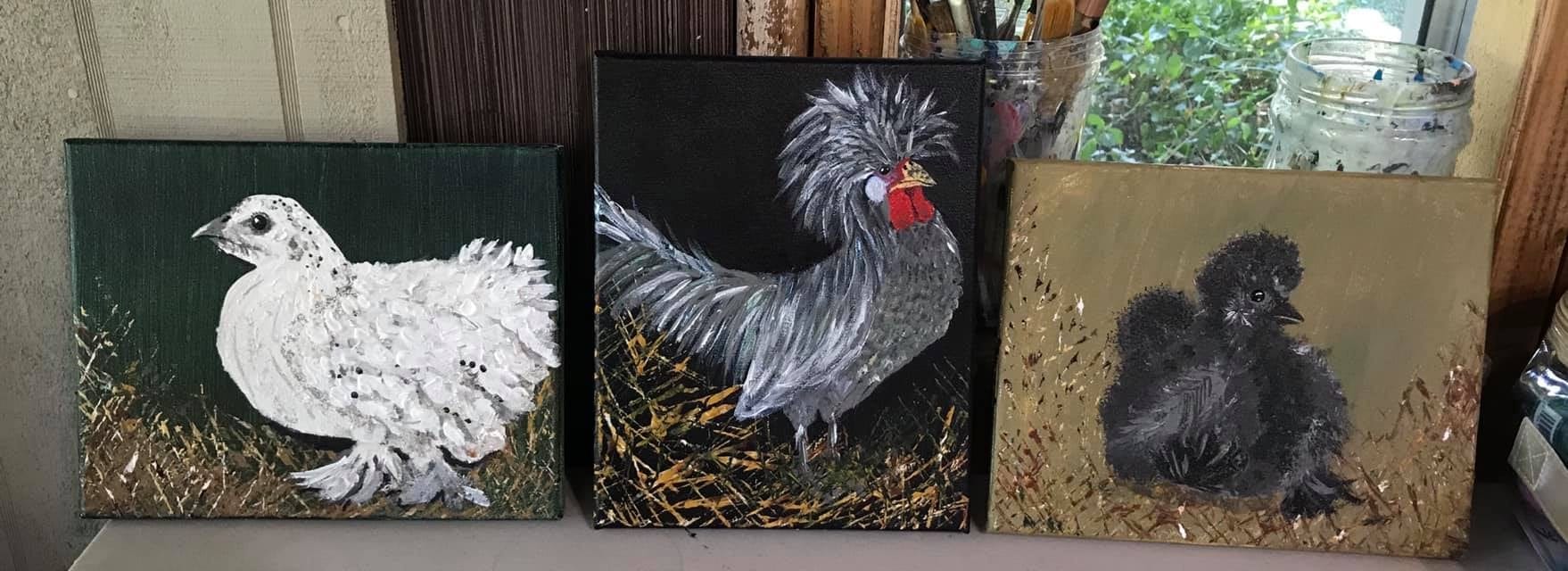
The two guys have passed on, but Pearl still graces her hosts with an egg or two.
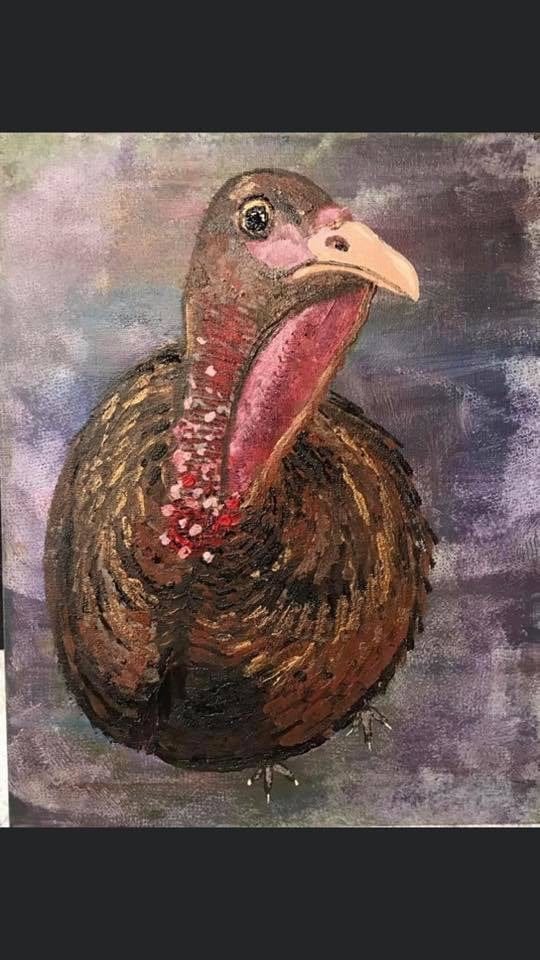
Delores was a turkey who was killed by California Department of Food and Agriculture during the outbreak of Virulent Newcastle Disease in 2018–2019. Over a million birds, many of them untested for the disease and possibly healthy, were killed during this time.
“So many of my friends lost their birds,” Harpur said. “I started doing memorial portraits for people. The first was Delores. I couldn't get her out of my mind from the livestream where the officers murdered her after she came running to them gobbling and friendly and the jerk grabbed her by the neck and slammed her to death in front of the 10-year-old boy who loved her so much.”
Zoned for crowing birds
Roos Rescue is located within Harpur’s husband’s business, which has been zoned as manufacturing and production.
“Within that zoning, ‘animal keeping’ is specifically listed,” Harpur said, “However, the city and county of LA have strict rules about keeping of roosters, limiting most to one per property — some can’t have any at all. So, I procured a special waiver/accommodation in writing through the LA Dept. of Animal Regulation, city officials and the city attorney, which I keep on file.”
Like all mother hens, Harpur goes to every length to protect her brood. Dozens of roosters, a few hens and the occasional quail are housed in purpose-built wooden coops and in 20-by-30-foot pens, with plenty of room to stand, open their wings, and do any chicken dance that tickles them. The pens are secured with chicken wire around and on top of the cages to thwart predators like opossums and raccoons. Harpur learned about predators through sad experience. Just before the rescue was officially established, Marshmallow was killed by an opossum, and later, five birds were killed, including a tom turkey who was protecting his flock. The cages are now reinforced with hardware cloth.
“Chicken wire keeps them in, but hardware cloth keeps them out,” Harpur said. “I also put loose, floating chicken wire on top to frustrate predators, especially opossums. Hardware cloth isn’t cheap, but it keeps them out.”
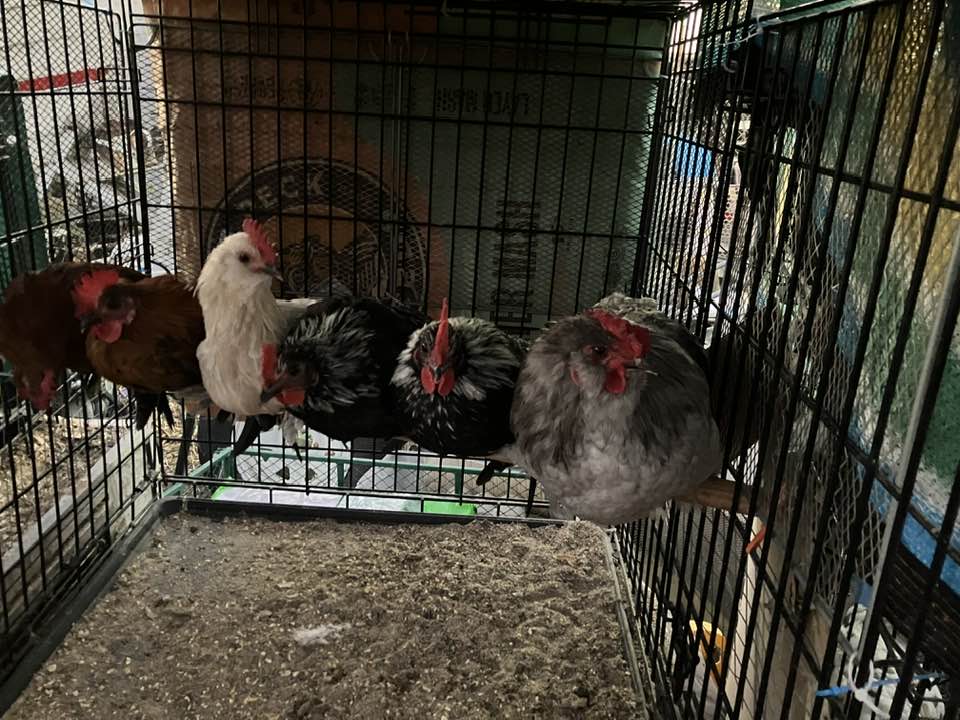
When a new bird comes in or Harpur sees one acting a little off, they go straight to the “hospital.” An infirmary for sick birds and an iso area for newcomers, both equipped with metal dog crates that can contain disease, round off the rescue.
“We have to watch out for avian diseases,” Harpur said. “Chickens can pass [from them] pretty quickly. In the winter, I watch for respiratory for bumblefoot [an inflammatory disease that affects chickens’ ability to walk] because that’s a common chicken disease, although I don’t actually get it very often.”
It’s not all wrassling with predators, disease and other nastiness. Once a week, Harpur and a young volunteer ring the dinner bell and make sure that her eager guests eat their nice vegetables from the farmers market. Roosters love to sink their beaks into a fresh stalk of broccoli or a nice, juicy tomato! Video courtesy of Rescue Roos. Volunteers help out here.
Harpur appreciates the volunteers who help her out: a high school student with autism who does a lot of the heavy work and families who come in a couple of times..
“One of the best jobs is chicken socialization,” she said. “Yep, you get to play with chickens in my dog-training yard! We have a couple girls from Lakewood who teach the chickens to jump and do the teeter totter.”
Rescue Roos also has an education program that teaches kids about chickens, roosters especially, of course. Scout troops and religious organizations come in for planned visits, and public schools get visits from the coop.
The adoption wing of the rooster rescue is where Mother Hen rattles her toe claws at the public. People who have birds to rehome or want to bring one home may post on the Facebook group page after they join up. Members must stick with a strict code of conduct: no pecking each other with comments about culling or other touchy topics, no sales, no birds in areas not zoned for them. And you’d better know that the birds are “Not for Dinner. NOT for cockfighting NOT for baiting. If the group discovers you are in fact a cockfighter, we will report you to authorities if you have gotten birds under false pretenses.”
Harpur’s not clucking around. The group’s administrator goes over all group requests with a fine-tooth comb — heh — and denies membership and adoption if there’s a hint of anything nefarious, like cockfighting or intent to fricassee anyone.
“So far, we have had two suspected cockfighting people get into the group, and our attentive membership contacted me to investigate,” Harpur said. “I contacted all the people who had been in contact with the suspected fighters, shared the info I had, and removed the suspected fighters from the group. They did not get any birds from our group. Then, I got our administrator’s help, and we haven’t had an issue since. She’ll deny any hint of a fighter, so we haven’t had that issue for a while now. I’m so lucky to have her!”
Adoptions or surrender will cost the individual two weeks’ worth of feed, which the individual will drop off.
Donations are accepted from anyone who wants to feather the rescue’s nest. Access the QR code for Venmo on this link, or type Deborah Davidson Harpur into your Venmo account. Because Rescue Roos isn’t a nonprofit, there won’t be a tax write-off, but it’ll be a welcome gift for a rescue that operates, literally, on chicken feed.
YOURS DROOLY
Roosters aren’t as much in demand as furry pets are, and Rescue Roos isn’t bursting at its seams, even with several dozen birds.
But our shelter at Long Beach Animal Care Services (LBACS) sure is. The shelter is over capacity with dogs, especially large dogs and those who have been at the shelter for a long, long time.
Overcrowding in shelters can lead to significant behavioral issues from increased kennel stress, potential medical issues surfacing at a higher rate, and staff and volunteers working their tails off. Some pets might not leave the shelter in the best way. That’s especially true for dogs, who may be euthanized when behavioral stress cannot be managed. But the effects of stress can clear up just fine when the dog leaves the shelter for a home, no matter how temporary. Media exposure has gotten a few long-timers adopted and fostered — thank you, KTLA’s Kacey Montoya, for showcasing our doggies and getting results! I don’t have Ms. Montoya’s reach, but I hope that some of these wonderful pups will encourage you to visit LBACS at the very least as a foster and at the very most, forever! Their biggest fans, the volunteers, wrote the bios.
These dogs are all available for adoption, foster or rescue at Long Beach Animal Care Services, 7700 E. Spring St., Long Beach. Contact AnimalRescue@longbeach.gov or 562-570-3080 to adopt or foster. Shelter hours are Wednesday–Friday, 10 a.m.–5:30 p.m., and Saturday and Sunday, 10 a.m.–4 p.m. Closed Monday and Tuesday. No appointments required to pop in, and no parking fee for shelter visitors.
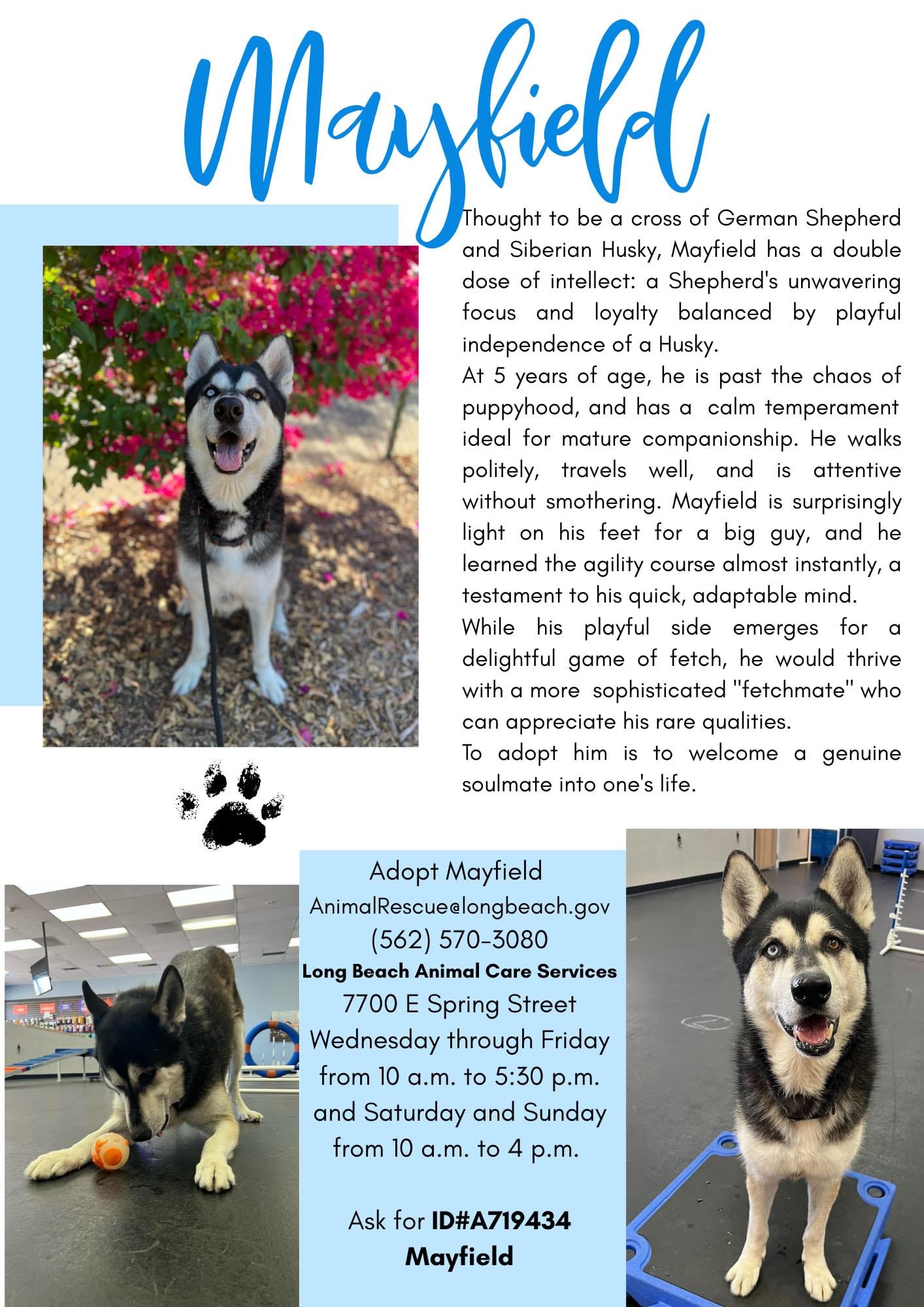
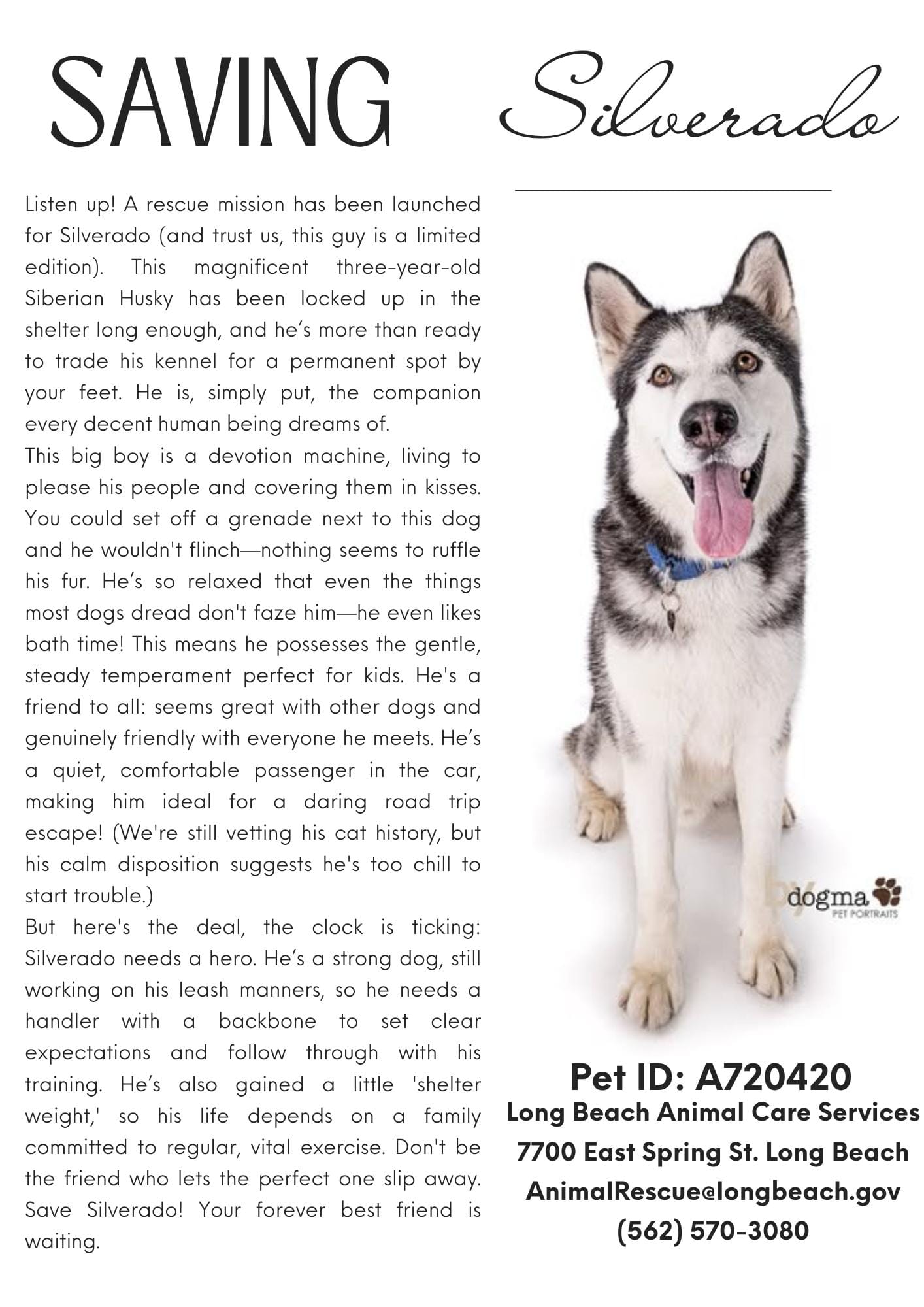

TAIL-WAGGIN' AND NOSE-BOOPIN' EVENTS
Interfaith Blessing of the Animals
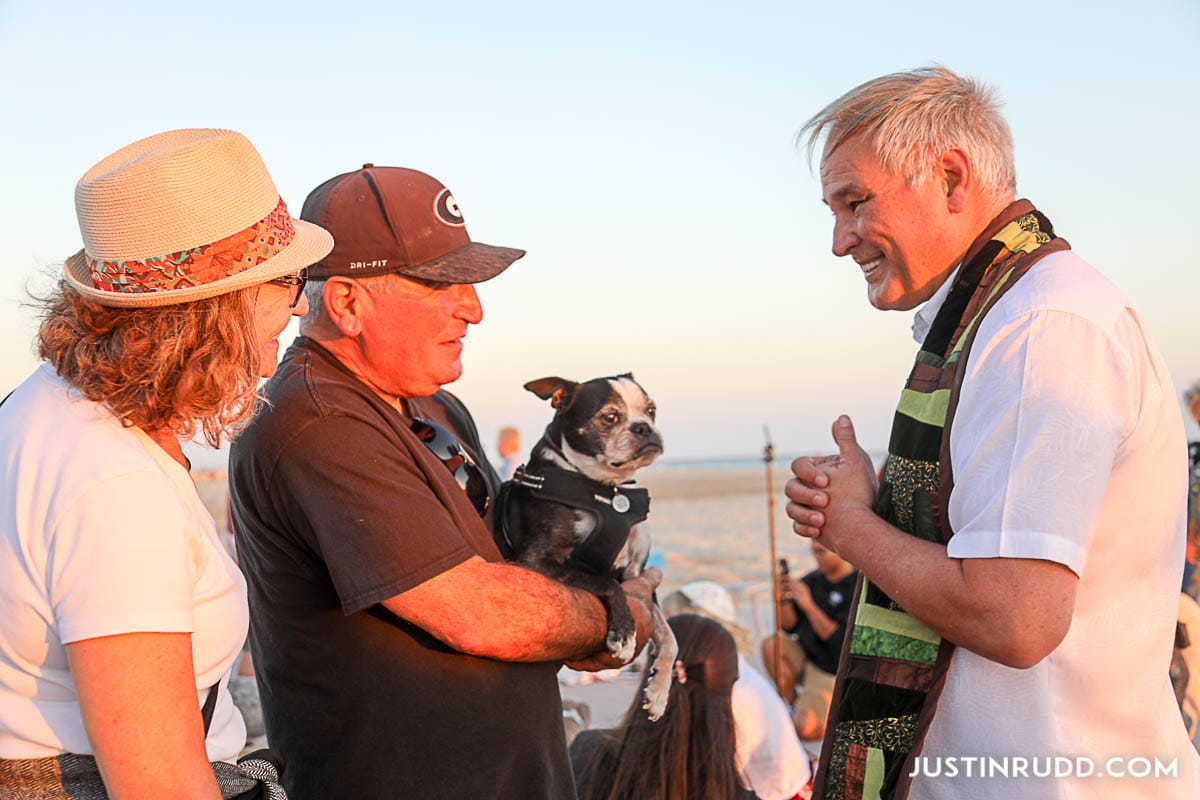
What’s October, autumn or anything animal and Beach without Justin Rudd? This month, the 23rd annual Interfaith Blessing of the Animals will take place in a new location: in front of the Chase Bank on E. Second Street. So far, eight religious leaders will be present to bless a pet who’s still with you or has passed on. Bring your well-behaved pet in a carrier or on a leash (tortoises could likely be in a wagon), or carry a photo of a departed buddy. This will be the second pet blessing in Long Beach this year. Animals may be blessed already, but we need all the blessing we can get now.
The 23rd Interfaith Blessing of the Animals will take place at 5 p.m. Sunday, Oct. 19, in front of the Chase Bank, 5200 E. Second St., Belmont Shore in Long Beach. Free event.
Haute Dogs Howl’oween Parade
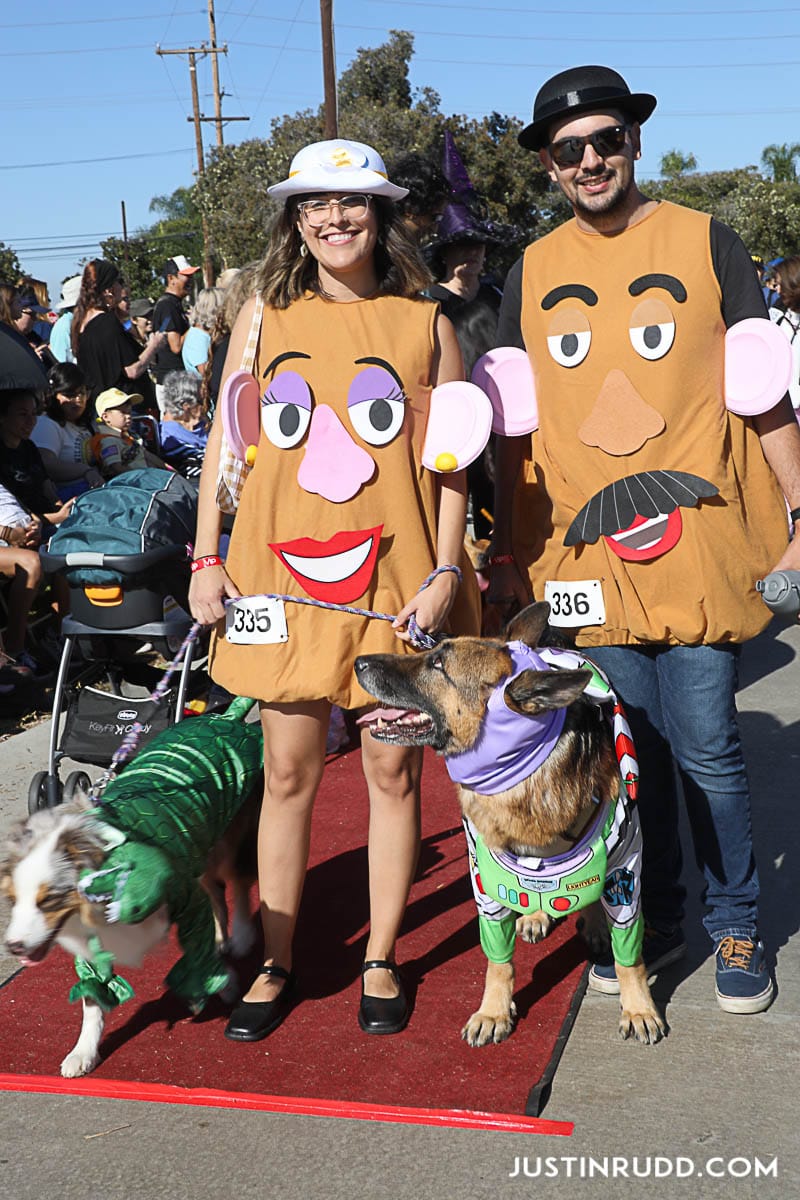
Then, of course, the best parade in the world follows! For 23 years, the Haute Dogs Howl’oween Parade has been entertaining everyone whether they have a dog or do not. Over 350 dogs and their humans entered last year, with 2,000 “dogless spectators,” as Justin put it. Entry is $10 in advance online, $20 the day of the event, and $35 VIP to skip the line and be first out the gate! Free to spectate, but you can rent a chair for $5. Vendors will be selling goodies for your pets, and in case you don’t have one, great rescues will be there as well. Dress up your dog and yourself if you like — no stereotypical cultural costumes such as Native American chiefs and Mexican sombreros will be permitted. If you’re unsure about the appropriateness of a costume, don’t wear it or dress your dog in it. Last year’s Howl’oween parade helped raised about $1,000 for the nonprofit 501c3 Community Action Team (CAT), of which Haute Dogs is a part.
The Haute Dogs Howl’oween Parade and vendor fair will take place at 12:30 p.m. Sunday, Oct. 26 at the beachfront grassy park and path in front of the former Belmont Pool, 4000 E. Olympic Plaza, Long Beach, just west of Rosie's Dog Beach. The parade is on the concrete path through the park. This link has information about registration, seat purchases, judges and costume categories. Registration will begin early this month.
Meowloween at Feline Good Social Club
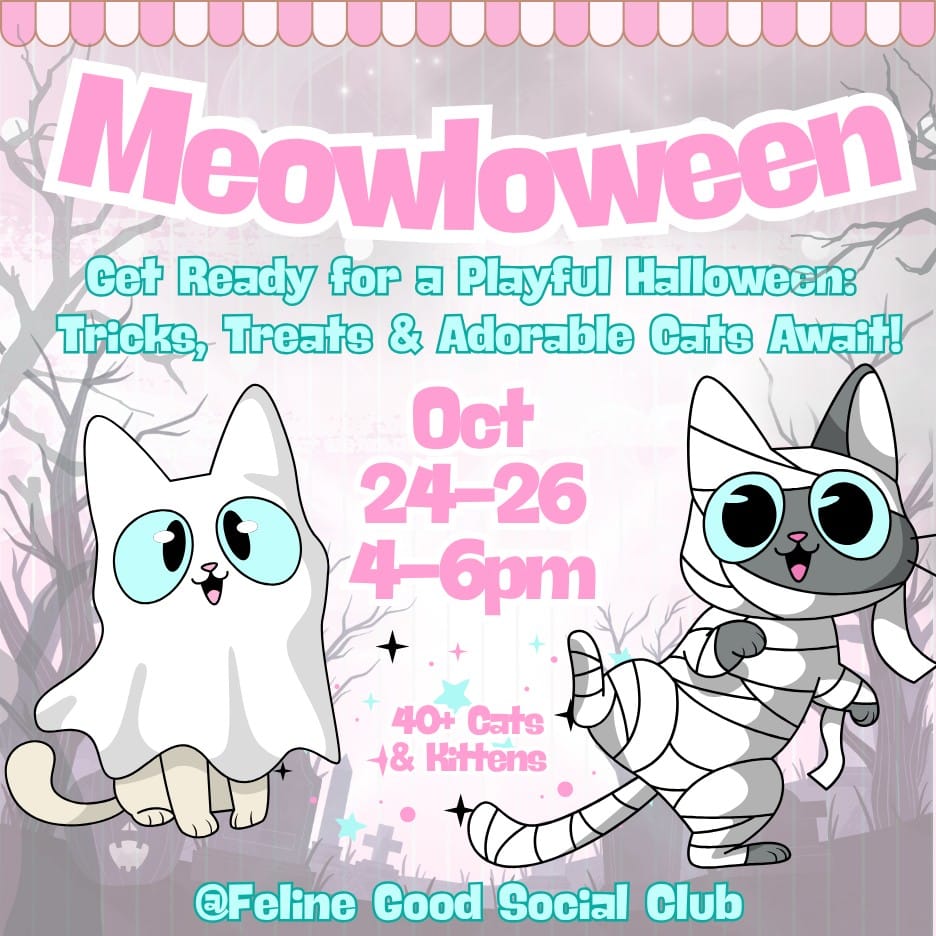
Welcome back the second annual festival with the best little things that go bump in the night and knock your stuff to the ground! Don't miss your second chance to celebrate with these creepy little imps! Participate in opportunity drawings, and pose in the photo booth with a little monster! Our furry felines will be looking their finest and sporting their cutest, safe ensembles for the paw-some Meowloween Nights Purrs Again event, so you get catted up, too!
Meowloween takes place 4 p.m.–6 p.m. Friday–Saturday, Oct. 24–26 at Feline Good Social Club, 301 Atlantic Ave., Long Beach. Tickets $19.99, available here.
Need a low-cost veterinarian, information about trapping community cats, places to volunteer, rescues and shelters to adopt from — anything pet related. Follow this link for resources. Please add your own ideas in the Comments section.
We need your support.
Subcribe to the Watchdog today.
The Long Beach Watchdog is owned by journalists, and paid for by readers like you. If independent, local reporting like the story you just read is important to you, support our work by becoming a subscriber.

